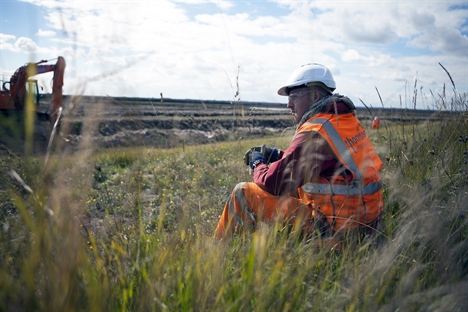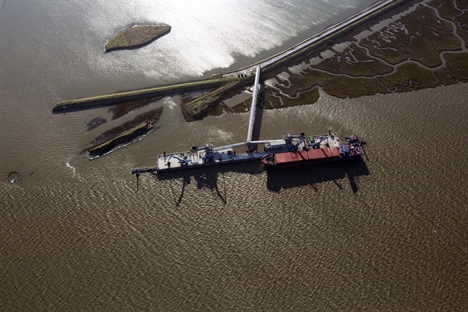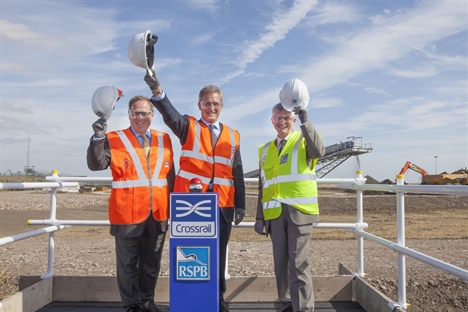13.07.15
Crossrail spoil put to good use at RSPB reserve
Construction work on the first phase of a major RSPB nature reserve that has used three million tonnes of excavated material from Crossrail was completed successfully this weekend.
The Wallasea Island Wild Coast project, just north of Southend-on-Sea in Essex, is using the spoil from the Crossrail tunnels under central London to transform 670 hectares of farmland back into a coastal marshland by raising part of the island and creating new wildlife-friendly environments.
The 26 miles of new tunnels for Crossrail were completed last month.

At the weekend, the partners completed the first phase of the project, when the new sea walls of ‘Cell 1’ were breached to allow for tidal flow. This was earlier than the original 2016 estimate.
About 98% of material excavated from Crossrail’s tunnels, stations and shafts has been recycled or re-used, with nearly half being shipped to help Wallasea Island, via an average of six daily barges with 8,000 tonnes of material on-board. The project partners said there were 2,400 such shipments in total, helping remove over 150,000 lorry journeys from the roads.

Andrew Wolstenholme, Crossrail chief executive, said: “Crossrail has helped deliver one of Europe’s most significant conservation projects on Wallasea Island. This trailblazing partnership with the RSPB is a key part of Crossrail’s sustainability strategy and demonstrates the benefits that can be achieved when the construction industry and environment groups work together.
“This major new wetland will be a lasting environmental legacy of the Crossrail project for generations to come as well as supporting growth and jobs through an increase in tourism to the local area.”
